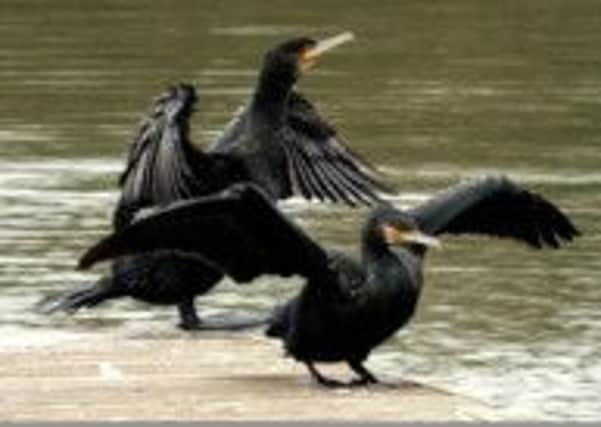Anglers set to tackle the predator from the sky


Their food chain diminished so they had no alternative but to look inland, and over the past few years they have been a major cause in the decline of freshwater fish.
Some may think that in their position, they would do the same. The problem, however, is that their population has increased to such large numbers they are destroying vast numbers of freshwater fish to such an extent that action has to be taken.
Advertisement
Hide AdAdvertisement
Hide AdThere are several ways that angling clubs can now protect their valuable fish stocks and that means reducing the number of cormorants found eating fish from the country’s rivers, ponds and lakes.
Petworth and Bognor Angling Club have taken advice from the Angling Trust, who have a team of experts on hand to advise on how best to deal with this.
Cormorants shy away when they see an angler close by or hear a sudden noise so during those times when no-one is fishing the club intend having dummies dressed up to look like anglers placed close to the water, the equivalent to a farmer’s scarecrow.
Add to that a loud bang from a starting pistol from one of the club’s warden, which should scare away these predators from the sky.
Advertisement
Hide AdAdvertisement
Hide AdThis may seem a bit drastic but unless we protect our fish, the balance of nature will have been tipped in one direction as a result of man’s misjudgement in the first place – and at least a start has been made.
A recently-seen picture of a bream severely savaged by a cormorant shows why we need to control them. This 1lb bream was rescued from one of our ponds but didn’t survive.
Anyone going fishing in the winter deserves some good luck and although most freshwater fish lie low when the temperature is well down, it doesn’t mean they don’t feed, and this year the club’s river stretches continue to provide some good catches.
Patience and careful methods are needed. Chub are good winter feeders and currently appear to be caught more than other varieties, although perch are taking worm from some swims.
Advertisement
Hide AdAdvertisement
Hide AdThe chub favour cheese in the winter while meat cubes and boilies seem to attract eels from both the Rother and the Arun.
The club’s ponds at Walburton and Hurston are fishing quite well but as you would expect in winter, the catches very much depend on the bait and method. What works well in the summer doesn’t necessarily provide results during these cold days.
The close season for coarse-fishing – March 15 to June 15 – is not that far away. It’s a pity that the fine spring days ahead deprive us from fishing but that break is absolutely essential.
The fish spawn and need to be left alone, and it then occurs to anglers that we should have taken the time to fish much more during the winter, so wrap up warm and get out there and who knows what you may catch (hopefully not a cold!).
Where to fish? Check www.sussexangling.co.uk – and be careful of slippery banks. Try not to fish alone.
ROGER POOLE